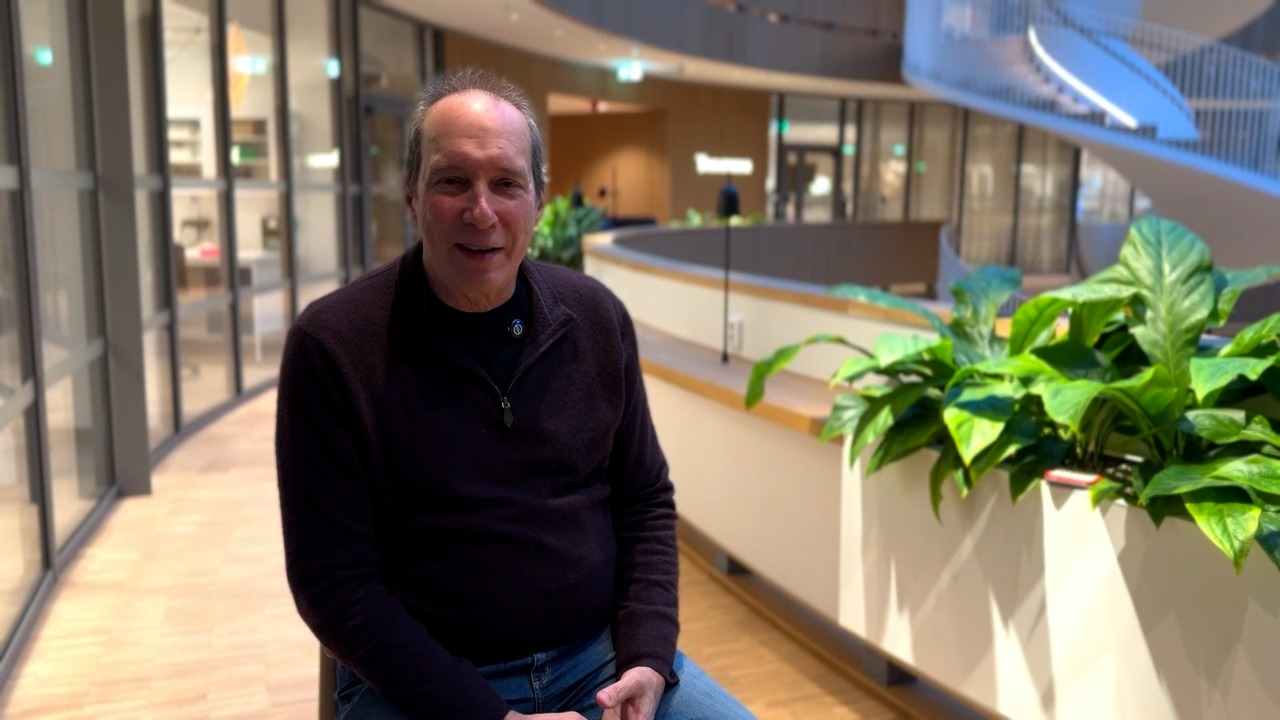Winners of Science & SciLifeLab Prize announced
Bats Illuminate Ways to Control and Prevent Disease – Research Earns International Prize for Young Scientists
For his novel research using viral infections in bats to help answer questions about how infectious diseases jump between species, Daniel G. Streicker has been named the 2013 Grand Prize winner of the Science & SciLifeLab Prize for Young Scientists. The new prize awards early-career scientists and includes a grand-prize award of US$25,000, supported by Science for Life Laboratory and the journal Science.
How do ecology and evolution interact to allow viruses to spill into new host species? Daniel Streicker, a Sir Henry Dale Research Fellow at the Institute of Biodiversity, Animal Health and Comparative Medicine at the University of Glasgow in Scotland, UK, focused on this question in the research discussed in his grand-prize winning essay, “From persistence to cross-species emergence of a viral zoonosis,” which will appear in the 6 December 2013 issue of Science.
In his interdisciplinary work, integrating ecological and evolutionary analyses of bats, he hopes to uncover patterns in the origins of cross-species virus transmission and the frequency of pathogen emergence. Streicker hopes to inspire other young scientists to think about ways to tackle problems in the area of emerging infectious diseases, which threaten all life.
“My work on bat rabies has shown it to be a surprisingly tractable system for answering some of those fundamental questions about how viruses emerge, and I think this has led us to some insights that would not have been possible in other systems.”
Streicker, meanwhile, is looking ahead, ready to tackle new goals. “In the longer term, for my research, I’m really hoping to push for cross-fertilization between ecology, evolution and public health. That means thinking about disease control efforts almost as a tool to study ecological processes, but then conversely also using ecological modeling and field experiments to try and better inform public health decision-making.”
“Recognizing promising doctoral students for their tremendous achievements in science adds important momentum to the career trajectories of very worthy young researchers,” said Marcia McNutt, editor-in-chief of Science. “We are excited to honor researchers for their novel contributions and concepts while highlighting societally valuable contributions to preventing or treating diseases.”
Streicker will receive the award for his research in the field of environmental life science in Stockholm, Sweden, on Monday, 9 December, during an award ceremony and dinner at the Grand Hôtel in the Hall of Mirrors, which held the first Nobel Prize ceremony in 1901.
“The Science and SciLifeLab Prize is a tremendous honor” said Streicker. “The day-to-day work of scientific research is full of challenges and small victories, so awards like the Science and SciLifeLab Prize that recognize not a single achievement but the synthesis of years of work are quite extraordinary. That the award spans disciplines across the life sciences makes it even more special.”
“Science has never been more exciting and we aim to support, encourage and inspire young researchers with this prize – today and in the future,” said Mathias Uhlén, the director for SciLifeLab and a key founder of the prize. “Our society needs a vibrant science community, and this prize recognizes the brightest young researchers and the best new ideas in science today,” said Barbara Jasny, deputy editor of Science.
The Science & SciLifeLab Prize for Young Scientists is a new prize aimed at rewarding young scientists at an early stage of their careers. The categories for this annual award are genomics/proteomics/systems biology, developmental biology, molecular and cell biology as well as environmental life science.
Applicants for the 2013 Science & SciLifeLab Prize for Young Scientists submitted a 1000-word essay that was judged by an independent editorial team organized by the journal Science. Their essays were judged on the quality of research and the applicants’ ability to articulate how their work would contribute to the scientific field.
The 2013 award also recognizes the following runners-up winners, whose essays will be published in the journal Science online in early December. The runner-up to the Grand Prize receives US$5,000 and each of the other two second runners up receives US$2,500.
2013 First Runner-up
Gabriel Victora: For his essay on the topic of molecular and cellular biology, “Stop, go, and evolve.”
2013 Second Runners-up
Weizhe Hong: For his essay on the topic of developmental biology, “Assembly of a neural circuit.”
Dominic Schmidt: For his essay on the topic of genomics, “Dynamics and evolution of vertebrate transcriptional regulator binding.”
Information about the prize and copies of the winning essays are posted at www.sciencemag.org. For the full text of essays by the winners and for information about applying for next year’s awards see http://www.sciencemag.org/site/feature/data/prizes/scilifelab/ or http://scim.ag/SciLifeLab.
Read the press release in Swedish Vinnaren av Science & SciLifeLab Prize utsedd
Listen to the 2013 Science & SciLifeLab Prize Winners in Uppsala, Dec 9th and Stockholm, Dec 10th.




